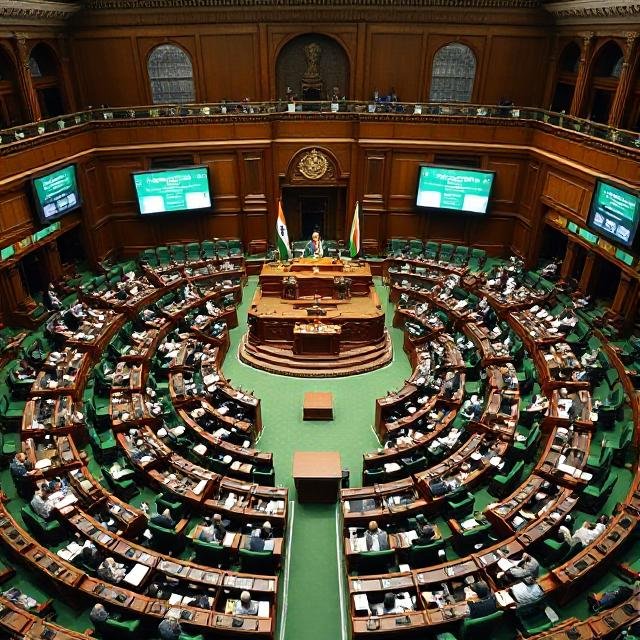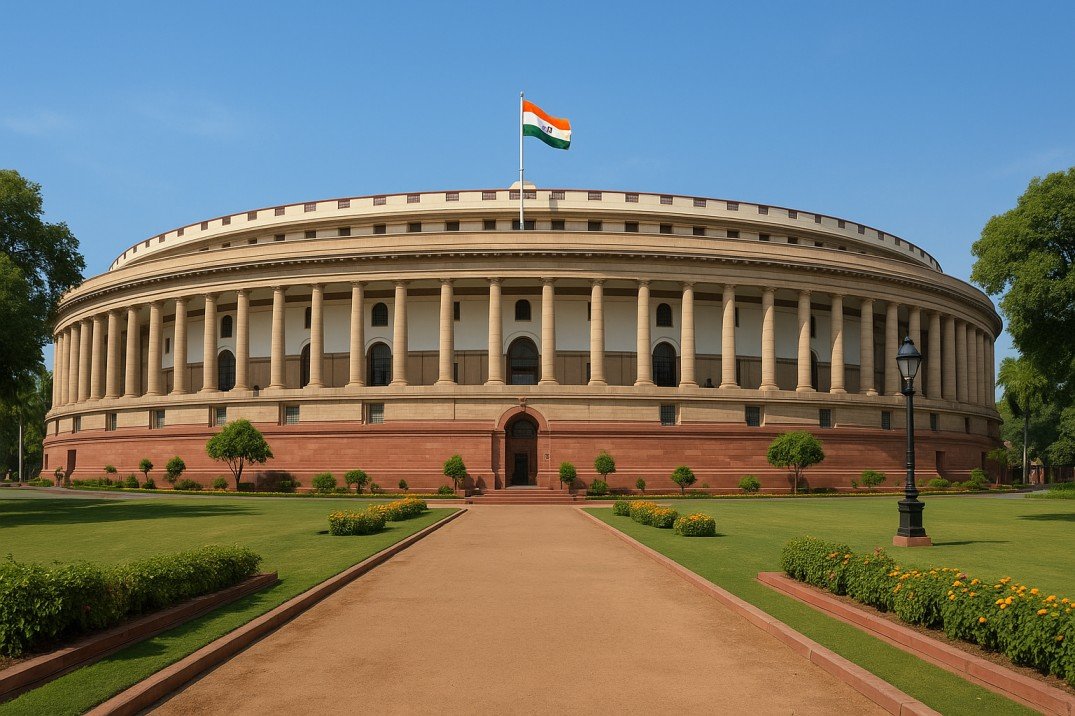The latest session of the Indian Parliament concluded with a mix of spirited debates, critical legislations, and some controversial moments that captured the nation’s attention. From economic reforms to pressing social issues, this session was marked by intense discussions and landmark decisions that will shape the country’s policy direction in the coming months. Here are the key highlights from the recent Parliament session that every citizen should know about.
1. Economic Bills Take Center Stage
One of the major focuses during this session was the introduction and passage of several economic reform bills. The Finance Minister presented the Mid-Year Economic Review, which sparked lengthy discussions from both the ruling party and the opposition. Key tax reform proposals were also debated, including amendments to the GST Act aiming to simplify compliance for small businesses.
A new bill focused on boosting foreign direct investment in select sectors received considerable attention. It aimed to open doors for more global participation in areas like defense production and digital infrastructure. This move was welcomed by industry bodies, although it did raise concerns about national security and data privacy from certain opposition leaders.
2. Women’s Reservation Bill Finally Moves Forward
One of the most talked-about moments of the session was the progress made on the long-pending Women’s Reservation Bill. After years of delay, the bill proposing 33 percent reservation for women in the Lok Sabha and state legislative assemblies was introduced and debated extensively.
Lawmakers from across the political spectrum participated in the discussion, with most parties expressing support. However, some parties pushed for the inclusion of sub-quotas to ensure representation from backward and minority communities. The bill is now expected to be tabled in the next session for final approval, pending certain procedural clearances.
3. Heated Debate on National Education Policy Implementation
The government’s push to implement the New Education Policy (NEP) saw passionate debate in both houses. Supporters praised the policy for its focus on skill development, multilingual learning, and vocational training. Critics, however, raised concerns over the centralization of education and the potential marginalization of regional languages.
Several members also questioned the readiness of states to adopt the new structure and called for more funding and clarity in execution plans. The Education Minister assured the house that stakeholder consultations were ongoing and that the policy would be implemented in a phased and inclusive manner.
4. Climate Change and Environment Protection Discussions
Environmental issues gained significant prominence in this session. Parliamentarians expressed alarm over the increasing frequency of extreme weather events across the country, including floods, heatwaves, and droughts. The Ministry of Environment, Forest and Climate Change presented an updated climate action plan, emphasizing renewable energy targets and sustainable agriculture.
Members called for stricter regulation of industrial emissions and better waste management policies. A motion was also passed to form a joint committee to monitor environmental compliance in urban infrastructure projects. This reflects a growing recognition among lawmakers that climate action can no longer be delayed.
5. Opposition Walkouts Over Alleged Misuse of Investigative Agencies
The session was not without its share of political drama. Several opposition parties staged walkouts over the alleged misuse of central investigative agencies such as the Enforcement Directorate and the Central Bureau of Investigation. They accused the government of targeting political rivals under the pretext of corruption probes.
In response, the Home Minister defended the agencies, stating that they operate independently and follow legal procedures. This led to sharp exchanges between ruling and opposition members, highlighting the deep political divides in the current Parliament.

6. Farmers’ Issues Resurface
Farmers’ welfare was another subject that dominated the discussions. Members from agrarian states raised the issue of pending minimum support price guarantees and rising input costs. Some also urged the government to reconsider its approach toward agricultural subsidies and crop insurance schemes.
The Agriculture Minister responded by outlining new plans to improve irrigation, expand the Kisan Credit Card scheme, and promote climate-resilient crops. However, many MPs felt that these steps were insufficient and demanded more direct engagement with farmer unions.
7. Rising Unemployment Concerns
Youth unemployment and job creation were discussed at length, with opposition leaders pointing to the latest employment statistics. Several members questioned the effectiveness of government schemes like Make in India and Skill India, asking for better tracking of job outcomes and long-term planning.
In reply, the Labour Minister mentioned initiatives underway to increase apprenticeships, boost the gig economy, and attract investments in high-employment sectors like textiles, electronics, and tourism. Analysts believe this issue will remain central in future parliamentary sessions.
8. Push for Electoral Reforms
Electoral transparency was also on the agenda. A bill proposing reforms in political funding and stricter disclosure norms for electoral bonds was introduced, although it did not see much progress before the session ended. Several MPs highlighted the need for cleaner elections and greater public trust in democratic processes.
Additionally, a few members advocated for simultaneous elections across states and the center, citing cost efficiency and governance stability. This idea has been floated in the past, but continues to face practical challenges.
9. Digital India and Cybersecurity Focus
Digital infrastructure and cybersecurity received renewed attention, particularly after recent reports of data breaches. The IT Minister introduced a bill aimed at strengthening data protection laws, regulating tech companies, and enhancing consumer privacy.
The debate raised questions about striking the right balance between innovation and regulation. Many MPs emphasized the importance of safeguarding national digital assets while enabling the growth of startups and digital services.
10. Tribute to Former Leaders and Cultural Icons
Lastly, the session began with tributes to several prominent personalities who passed away recently, including former lawmakers, artists, and public figures. Members paid their respects and highlighted the legacy and contributions of these individuals to Indian society.
Conclusion
The recent Parliament session was packed with action, from bold policy moves to passionate debates and procedural wrangles. While some bills progressed swiftly, others remain under review for the next session. Overall, the tone of the session reflected both the urgency of present-day challenges and the enduring vitality of Indian democracy. Citizens are advised to stay informed, as the decisions taken during these discussions will significantly impact governance, economy, and society in the times ahead.









